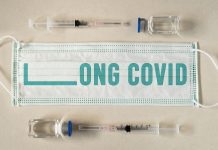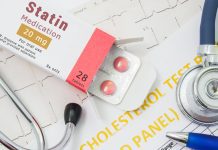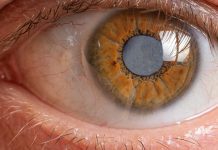Top five health benefits of CBD
CBD has been hailed as a miracle drug in recent years, with a multitude of scientific and anecdotal evidence claiming it can cure and...
New guidelines for improving AI in medicine
New reporting guidelines will ensure early studies on AI in medicine will provide the relevant data needed.
Artificial intelligence (AI) in medicine is the use...
What increases the risk of long Covid symptoms?
A Japanese research team at Hiroshima University have identified what characteristics make a person more likely to develop long Covid symptoms.
Long Covid symptoms are...
Can antibiotics before a caesarean birth affect the baby?
Researchers explore whether antibiotics before a caesarean birth can increase the risk of early childhood conditions such as asthma.
Caesarean birth is common, with a...
UK Government announce 10-year plan to improve dementia care
Sajid Javid, the UK Health and Social Care Secretary, has announced that a new 10-year plan to tackle dementia will be published later this...
Investigating how the brain changes during depression treatment
Researchers have demonstrated brain changes when a person receives a depression treatment called repetitive transcranial magnetic stimulation (rTMS).
Typically, rTMS is employed when other depression...
Statin medications prevent heart attacks, strokes, and now depression?
Statin medications that have been used by millions around the world for decades to reduce cholesterol may elicit previously unknown mental health benefits, with...
Concussions in children may have underlying causes
New research suggests the different ways brain damage caused by a concussion in children leads to a range of symptoms.
A concussion in children can...
One in six deaths worldwide attributed to environmental pollution in 2019
Data reveals that nine million deaths were attributable to environmental pollution in 2019, with little progress made since 2015.
An update to The Lancet Commission...
Eating a high-fat diet may cause cancer
Research performed at the Beckman Institute for Advanced Science and Technology suggests that consuming a high-fat diet may elevate the risk of cancer development.
Previous...
New hope for treating cognitive impairment in Parkinson’s patients
Ultra-powerful 7T MRI scanners could revolutionise treatment for cognitive impairment in Parkinson’s patients.
Parkinson’s disease is a brain disorder characterised by symptoms such as shaking,...
World’s first drug treatment for cataracts could be available soon
The first ever drug treatment for cataracts could be on the market imminently, with a team of international scientists at Anglia Ruskin University (ARU)...
One billion disabled people worldwide lack access to assistive technology
The World Health Organization (WHO) and UNICEF have published a new report highlighting that nearly one billion people globally who are living with a...
Airport sniffer dogs can detect passengers with SARS-CoV-2 infection
Trained sniffer dogs can accurately identify airport passengers with SARS-CoV-2 infection, potentially opening opportunities for COVID-19 detection.
As the summer holiday season approaches, new research...
Why we need urgent action on prostate cancer
As the world struggles to recover from the Covid pandemic and restore critical health services, including cancer services, now is the time to prioritise...
Breast cancer in men may cause infertility
Breast cancer in men is potentially associated with male infertility, a new study from The Institute of Cancer Research suggests.
The research team interviewed 1,998...
Using antibiotics may cause inflammatory bowel disease
Research performed by a team at the NYU Grossman School of Medicine suggests that antibiotic use may cause older adults to develop inflammatory bowel...
New guidelines aim to reduce MRSA infection prevalence
Infection prevention specialists, GAMA Healthcare, explain the evidence behind the guidelines and solutions that could help MRSA infection management.
There are few pathogens as synonymous...
Pfizer Covid vaccine prevented over 110,000 deaths in the US
A new study has revealed that the Pfizer Covid vaccine prevented over 110,000 deaths since its widespread implementation in the US.
The Pfizer Covid vaccine...
Robotic surgery reduces hospital readmission rates by 52%
New research into robotic surgery highlights the benefits of this technology for patients’ recovery time.
Is robotic surgery the future of healthcare? A new study...





















